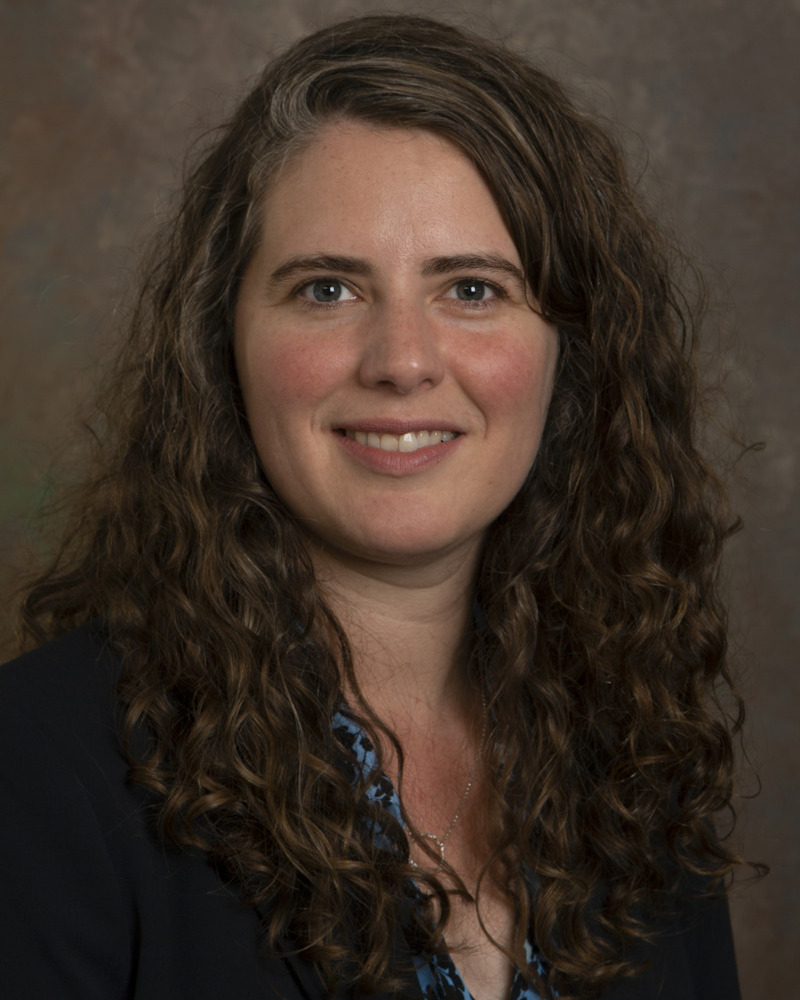


Supporting autistic students during graduation season
Photos by Evan Krape and Maria Errico April 29, 2025
Assistant Professor Sarah Curtiss shares guidance for supporting autistic family members during graduation season and vocational transitions
With graduation season just around the corner, many families are looking forward to celebrating their high school and college seniors in lively graduation ceremonies. But the graduation season and upcoming vocational transitions can be challenging for autistic people and their families, who may struggle with participating in a traditional ceremony, accessing resources after graduation and entering into the workforce.
Sarah Curtiss, assistant professor in UD’s College of Education and Human Development (CEHD), specializes in special education and developing programs for autistic youth that foster resilience, facilitate positive development and are grounded in lived experience. She shares guidance for educators, parents and community members on supporting autistic students during graduation season.
Q: Participating in a big graduation ceremony in a high school auditorium or college stadium may be overwhelming for some autistic students. How can schools support autistic students if they want to participate in a traditional ceremony?
Curtiss: Some schools consider accommodations that relieve some of the sensory discomfort that autistic students may experience during a graduation ceremony. Many autistic students have sensory differences that make it challenging to process bright lights, loud noises and even textures of clothing. Graduation ceremonies are often joyous, but the chatter of the crowd, the volume of the microphones, the music and the cheering can be very loud. Schools could consider having a sensory-friendly part of the ceremony where the audience is asked to be quiet and cheer through visual applause — holding both hands up and shaking or twisting them, for example. Even if a sensory-friendly part of graduation is not feasible, many autistic students can be successful with practice. Before the ceremony, schools can give the students the opportunity to visit the auditorium or stadium, walk down the aisle and practice receiving a diploma on stage, building up to the playing of recorded applause so students can be well prepared.

Q: How can families support high school seniors who are interested in attending college?
Curtiss: Many autistic high school students do not realize that college is an option. For students who can get into college through standard admissions procedures, many universities have programs that can support them to be successful socially and academically. UD’s program is called Spectrum Scholars and is housed in CEHD’s Center for Disabilities Studies (CDS). It offers a wide range of support while also working to make UD a neurodiversity-affirming campus. Because of a generous grant from J.P. Morgan Chase, Spectrum Scholars is currently provided to admitted students at no additional cost beyond their regular tuition.
For autistic students with intellectual disability, there are also college programs that provide academic, social and vocational development opportunities after high school. We have one of these programs at UD too: the Career and Life Studies Certificate program, also housed in CDS. Students can participate in the program as day students, or they can live on campus in residence halls. Over a two-year or four-year program, they participate in classes, clubs, campus events, internships and work experiences. CDS also offers a summer program called UDiscover so that high school students can get a taste of what college is like.
Q: As your research has shown, the transition from schooling to post-secondary or post-college life can be very challenging for autistic students. What resources are available?
Curtiss: For autistic students who received special education as high schoolers, once they graduate, they are faced with an entirely different system for receiving services — one that has unique eligibility requirements for each program and, unfortunately, there is no central coordination. Additionally, some autistic students who were successful in high school without accommodations find themselves needing them in adulthood to be successful in work, but without knowing how to access them.
Post-secondary services and systems can be difficult to navigate, but resources are available for students and their families. Many states, including Delaware, have a division of vocational rehabilitation. These state departments help people with disabilities prepare for, obtain or maintain employment. Even before students graduate high school, transition planning for students with individualized education plans (IEPs) should start early — in Delaware, at age 14. College and career exploration and learning independent living skills are great things that families and transition teams can be working on. Also, disabled mentors are a great resource for youth as they transition to adulthood.
Additional resources for families
April is National Autism Acceptance Month. CDS provides many resources for autistic people, their families and professionals including assistive technology supports and a range of resources offered through its Delaware Network for Excellence in Autism. To learn more about CEHD research in special education and disabilities, visit its research page.
Contact Us
Have a UDaily story idea?
Contact us at ocm@udel.edu
Members of the press
Contact us at mediarelations@udel.edu or visit the Media Relations website

